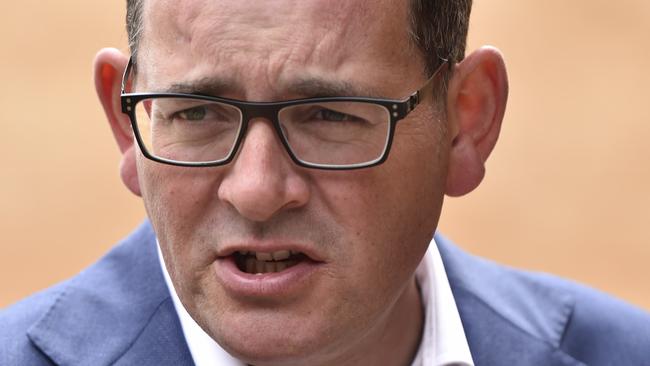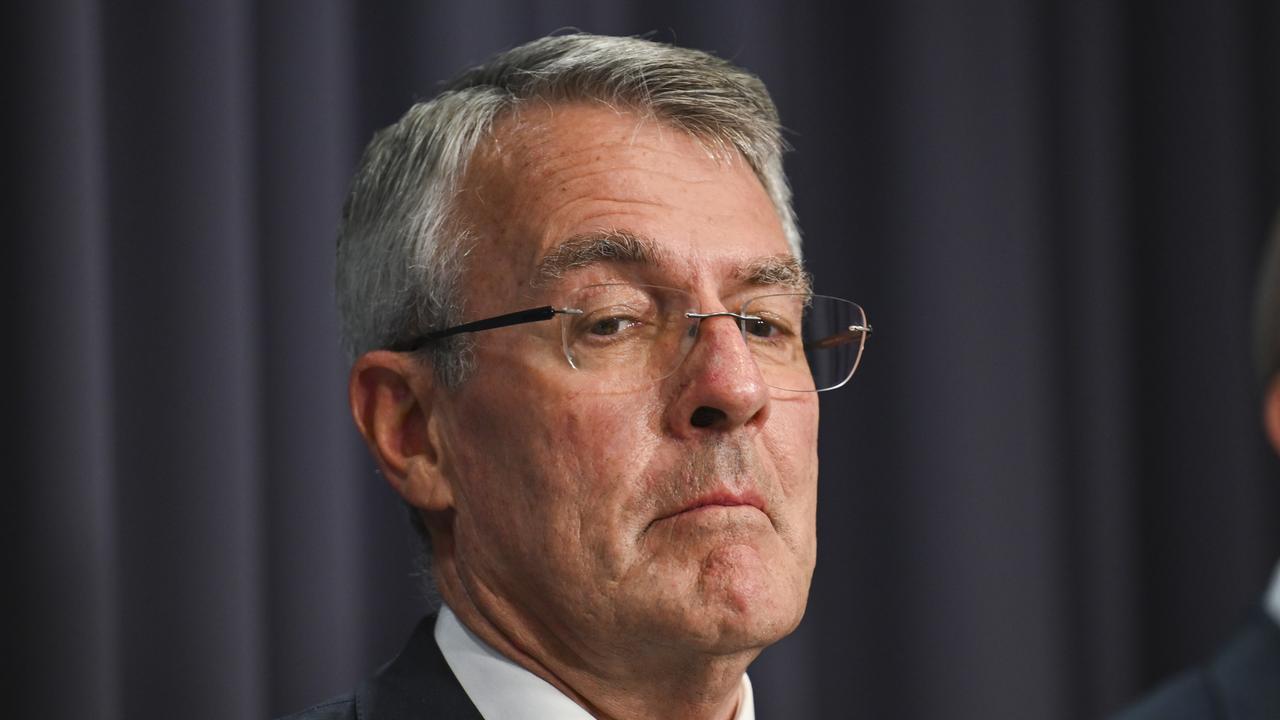Andrews won’t guarantee lower power bills
Daniel Andrews won’t guarantee lower prices under his government’s default energy market offer.

Energy Minister Angus Taylor has promised that the average Australian will be better off under the Morrison government’s proposed default energy market offer, but Victorian Premier Daniel Andrews has refused to make the same guarantee for the default offer Victorians will receive under his government.
The comments come as a new energy industry-commissioned report warns the Victorian default offer will reduce competition and increase prices for some customers — a view which has been shared by parties as disparate as charity St Vincent De Paul and investment bankers Morgan Stanley.
Under the federal government’s default market offer, customers in NSW, South Australia and southeast Queensland who are on so-called standing offers because they have not shopped around will be moved to a default price, determined by the Australian Energy Regulator, from July 1.
The default price will also become a reference price, which energy companies will have to declare when advertising their standing and market offers.
Customers in Victoria will be subject to the Andrews government’s Victorian default offer, with prices to be determined by the Essential Services Commission and retailers obliged to notify customers on every bill if there is a better offer available.
Amid warnings that default offers will result in power companies withdrawing their most competitive market offers, Mr Taylor said he could guarantee that the average Australian would be better off as a result of the federal policy.
“Yes. One hundred per cent,” he said.
Asked repeatedly whether he could guarantee the average Victorian would have a lower power bill under his scheme, Mr Andrews obfuscated, eventually saying: “I think the average Victorian customer will be substantially better off as a result of all the different policy positions we’ve taken.” He listed rooftop solar panels, the default offer and an “aggressive renewable energy agenda” as key measures.
A report prepared by management consulting company KPMG for energy industry peak body the Australian Energy Council warns customers “could pay more for their electricity following the introduction of the Victorian default offer”, and that “choice for customers could be reduced”.
St Vincent de Paul Society social policy unit manager Gavin Dufty said that if the Victorian default offer only applied to the three per cent of customers who never shop around, its impact on the market may be limited.
“But the intent is not that. The intent is that everybody will have the ability to get this. That creates a number of challenges,” he said.
“We may see a number of smaller retailers going broke, and that will concentrate market power and increase the price for all consumers.”
Morgan Stanley last month predicted retail energy competition would decline this year as a direct result of the federal and Victorian default offers, and the Victorian best offer rule — a situation it said was a “net positive” for energy giants AGL and Origin Energy.




To join the conversation, please log in. Don't have an account? Register
Join the conversation, you are commenting as Logout